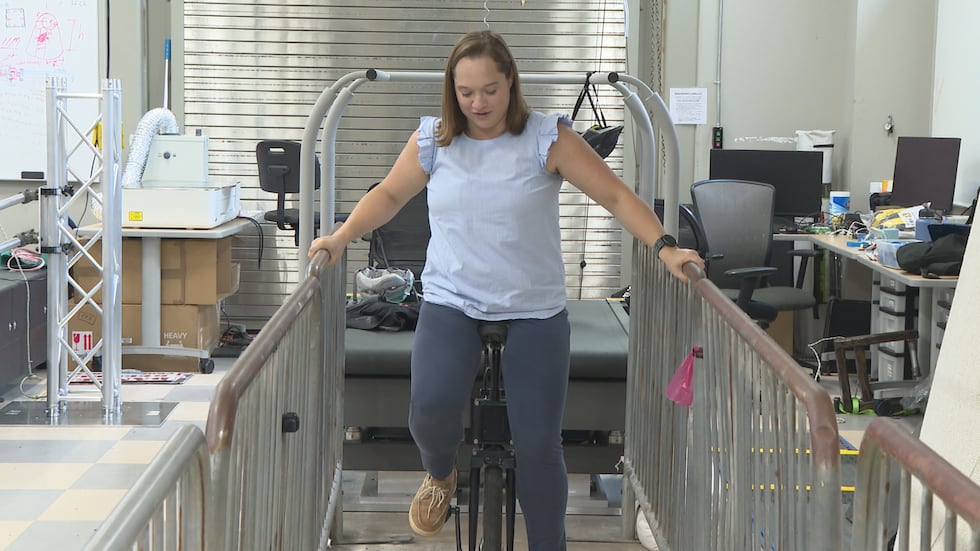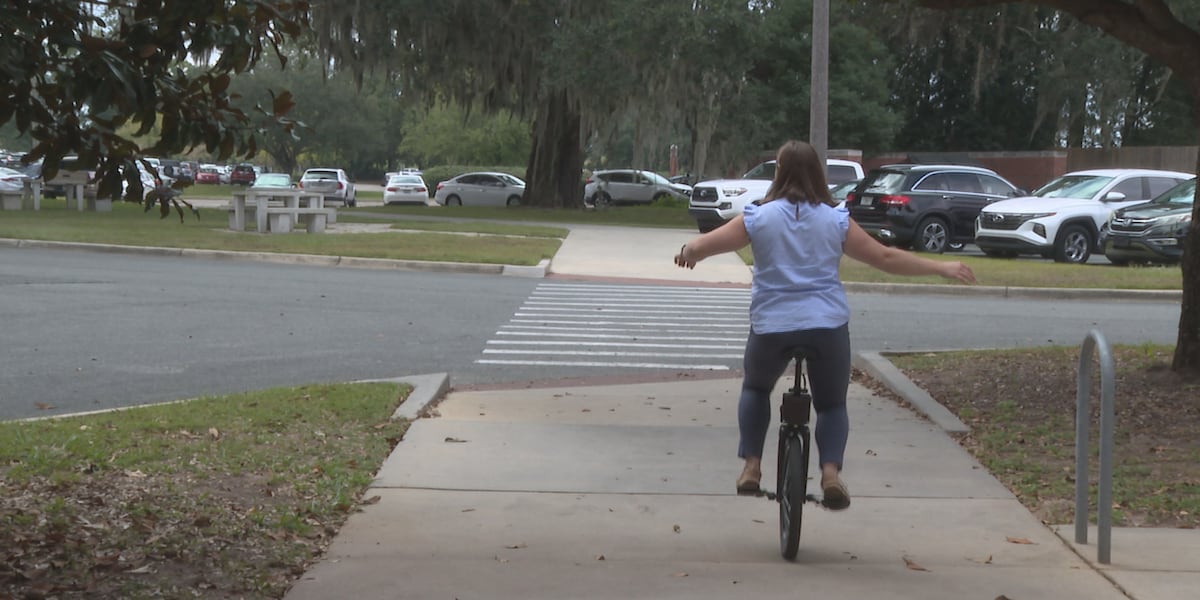TALLAHASSEE, Fla. (WCTV) – The Florida State Flying High Circus isn’t the only group of Seminoles working on a balancing act.
A couple miles away at the FSU-FAMU College of Engineering, a group of researchers is recruiting volunteers to master the unicycle, all in the name of science.
Associate Professor Taylor Higgins is leading the one-wheeled charge inside the college’s robotics lab.
 The unicycle’s continuous motion makes the math easier for robots, compared to the start-and-stop motion of walking.(WCTV)
The unicycle’s continuous motion makes the math easier for robots, compared to the start-and-stop motion of walking.(WCTV)
She recently met up with WCTV to talk about her work, which has a lofty goal.
“We want to rehabilitate the ability to walk after a really critical injury,” she said.
Her team is on the hunt for a more perfect robot, one that could use artificial intelligence to better understand human motion.
“There’s a lot that we still are not quite clear on about how humans learn to do these really amazing things,” she said.
That includes “how humans learn to do this weird unicycling thing,” she added.
Robotics has been incorporated into physical therapy, but it’s still a work in progress, according to Jennifer Maphis. She’s the regional director of physical and occupational therapy at Tallahassee Orthopedic Center.
“You don’t just do one motion. Very rarely is a human body moving in one plane,” Maphis said.
Current robotic exoskeletons are too rigid.
More Tallahassee news:
“My brain wants to do one thing, and the exoskeleton doesn’t quite get there,” Maphis said.
She’s not involved with this project but thinks the unicycle is a perfect choice.
“It makes perfect sense,” Maphis said. “The unicycle is something that not many people have tried.”
Higgins agreed. The unicycle’s continuous motion makes the math easier for robots, compared to the start-and-stop motion of walking.
But the unicycle is difficult to master for the average human.
Higgins said someone hopping on the contraption for the first time is in a similar anxiety-inducing predicament as someone relearning to walk following a stroke, for example.
So now, the volunteers will strap on a motion capture suit with sensors to collect data.
Higgins said the recruits will receive minimal instruction on how to ride. Instead, they’ll show up to the lab three times a week for an hour at a time, working with walls and ramps to build up the skill over time.
“You have to get back up and try again and again and again,” Higgins said.
“How can we either leverage or get past this feeling of fear to improve how fast we relearn these skills?”
The project will have three phases.
Volunteers will train on the regular unicycle. Researchers will collect that data on ‘human learning’ and compare it with ‘machine learning.’
They’ll then use those findings to develop a “roboticized unicycle” that hopefully accelerates the learning process.
The hope is that this work could then be applied in a physical therapy setting to improve outcomes for those relearning to walk.
The project is still in its early phases, and Higgins said she’s found no shortage of volunteers to hop on and give the unicycle a go.
More information about the project, including its funding, can be found here.
To keep up with the latest news as it develops, follow WCTV on Facebook, Instagram, YouTube, Nextdoor and X (Twitter).
Have a news tip or see an error? Write to us here. Please include the article’s headline in your message.
Be the first to see all the biggest headlines by downloading the WCTV News app. Click here to get started.
Copyright 2025 WCTV. All rights reserved.

